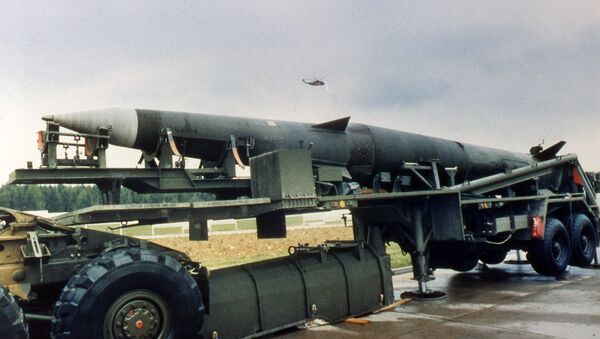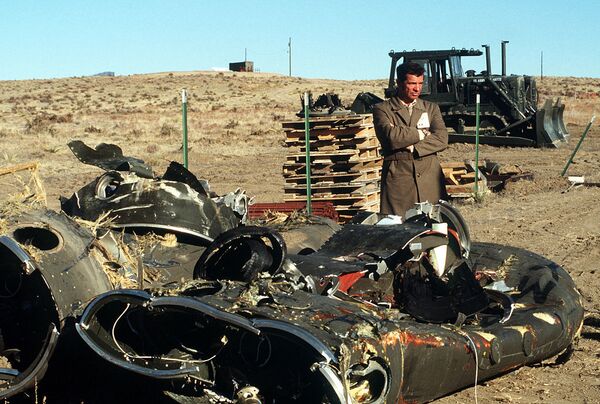Russia is calling on the United States to abandon plans to deploy medium- and shorter-range missiles, Russian Deputy Foreign Minister Sergei Ryabkov said.
"We urge Washington to show responsibility and, following the example of Russia, to abandon the deployment of the medium- and shorter-range systems the Americans have built, which the Pentagon has actively talked about," Ryabkov said at a briefing.
Washington seeks to eliminate all agreements on arms control that it deems unsatisfactory, Ryabkov added.
The United States has not taken any action to eliminate violations of its obligations under the Treaty on the Termination of the Intermediate-Range Nuclear Forces Treaty (INF), Sergei Ryabkov stressed.
"In fact, it was the United States that did not take the necessary steps to eliminate violations of its obligations under the treaty," he said.
In the face of new threats from the United States, Russia will take comprehensive action to ensure its security, deputy minister said.
“Under the new threats generated by the US, we, of course, will take comprehensive measures to ensure our own security. Moreover, as announced by Russian President Vladimir Putin on 2 February, our country will not deploy medium- or shorter-range ground missiles in Europe or in other regions until American weapons of this class appear there, " Ryabkov said at a briefing on Monday.
Russia's decision on where to deploy its missiles will depend on Washington's steps, the diplomat noted.
"If the United States starts to deploy its new systems in Asia, then relevant steps aimed at balancing these actions will be made ... This is equally applicable [to the situation when the United States deploys its missiles] in Europe," Ryabkov added.
Any further steps in the field of arms control should take into account, among other things, the nuclear missile capabilities of France and Great Britain, Sergei Ryabkov added.
"Without any doubt, we will insist that relevant potentials of France and the United Kingdom should be taken into consideration when making any further steps on nuclear missiles control, when discussing the prospects of negotiation formats and possible agreements," Ryabkov said at a briefing, stressing that Russia was ready to discuss new arms control deals.
Russia advocates continuing a constructive dialogue with the United States on strategic stability based on respect for each other and mutual consideration of interests, Ryabkov said at a briefing.
"I see no reason to review our military doctrine. This is a fundamental forward-looking document, and its wording has been thoroughly calibrated. It should not be adjusted all the time depending on different circumstances," Ryabkov stressed.
On 2 August, the United States officially withdrew from the INF Treaty that prohibited Washington and Moscow from using and developing certain types of missiles.
In February the United States announced that it would be suspending its obligations under the INF Treaty within six months if Russia refused to resume compliance with the accord's provisions.
In turn, in July, Russian President Vladimir Putin signed a retaliatory decree halting Russia's participation in the treaty.
The INF Treaty, signed by then-US President Ronald Reagan and Soviet General Secretary Mikhail Gorbachev in 1987, required the two countries to eliminate and permanently forswear all of their ground-launched ballistic and cruise missiles with ranges of 500 to 5,500 kilometres (310 to 3,417 miles).





